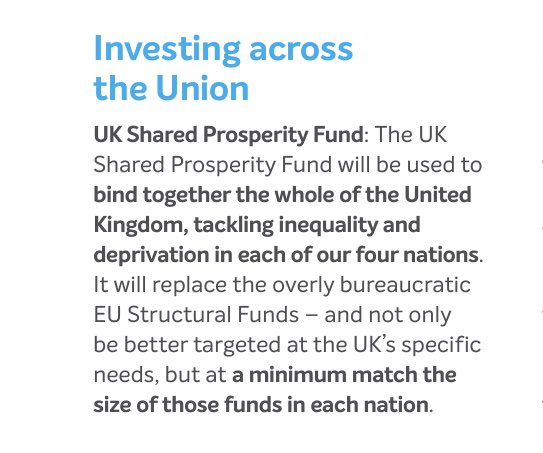A new public body tasked with increasing the prosperity of the North is to be welcomed.
Having worked on hundreds of Northern regeneration projects during the last twelve years, I’m looking forward to @RobertJenrick‘s Devolution White Paper.
Having worked on hundreds of Northern regeneration projects during the last twelve years, I’m looking forward to @RobertJenrick‘s Devolution White Paper.
https://twitter.com/themjcouk/status/1305824612698279936
I’m hoping there will be information about the new UK Shared Prosperity Fund.
I’m interested to see how the process can be made quicker and easier, whilst also taking forward the Local Industrial Strategies and fostering innovation.
I’m interested to see how the process can be made quicker and easier, whilst also taking forward the Local Industrial Strategies and fostering innovation.
Naturally I’d also like to see Westminster functions moved to the North.
For example, can the new OIM created by the UK Internal Market be located in the North?
For example, can the new OIM created by the UK Internal Market be located in the North?
The reorganisation of Local Government isn’t likely to win new voters, but there is an opportunity to make improvements.
People need to engage with it constructively rather than dig their heels in.
People need to engage with it constructively rather than dig their heels in.
Hopefully we’ll hear more about ‘earned responsibility’, as mentioned by @BenHouchen in this excellent webinar last week.
Every Mayoral Combined Authority needs certain base powers and if they prove themselves competent, they can build themselves up.
players.brightcove.net/5807743129001/…
Every Mayoral Combined Authority needs certain base powers and if they prove themselves competent, they can build themselves up.
players.brightcove.net/5807743129001/…
For that to work, there needs to be a clear pathway understood by all elected Mayors, their Combined Authorities and the #NP11 LEPs.
There needs to be a way to keep regeneration boards fresh and lively, for example limiting the terms which people can serve.
There needs to be a way to keep regeneration boards fresh and lively, for example limiting the terms which people can serve.
Mayoral Combined Authorities and LEPs also need to be properly staffed.
In some areas all the Councils back their MCAs and LEPs, in others the support is tepid. The impact of that upon delivery can be addressed by including in UKSPF public funds for this purpose.
In some areas all the Councils back their MCAs and LEPs, in others the support is tepid. The impact of that upon delivery can be addressed by including in UKSPF public funds for this purpose.
So plenty of ways to improve Northern Regeneration.
Finally, let’s stop seeing Westminster as somehow opposed to regeneration in the North.
It’s not, to succeed we need to work together towards the common objective of improving the North.
Finally, let’s stop seeing Westminster as somehow opposed to regeneration in the North.
It’s not, to succeed we need to work together towards the common objective of improving the North.
• • •
Missing some Tweet in this thread? You can try to
force a refresh























